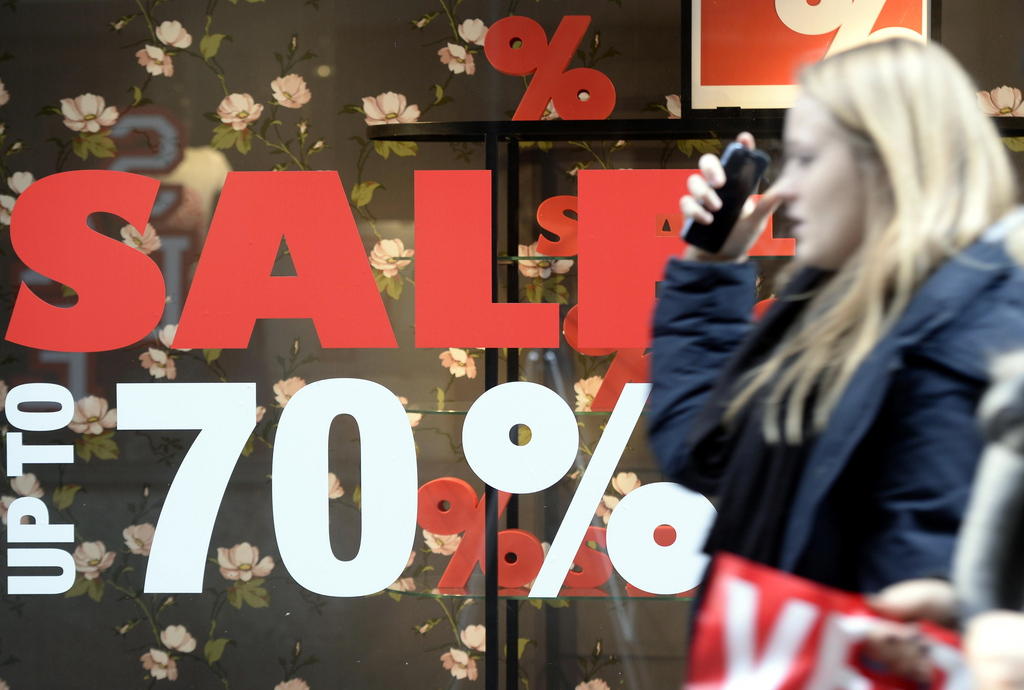Understanding the ‘Swiss price island’

Switzerland is a tough place to afford, according to a series of recent headlines, but complaints about its high prices might reflect more of a resistance to change when it comes to spending habits.
Once again this year, Zurich, Geneva and Bern ranked among the world’s priciest cities. Even some Swiss abroad say they can no longer afford to visit home, due to high prices and a strong franc.
Consumer prices in Switzerland are on average three-fifths costlier than in the European Union. The Swiss pay more for full time childcare, coffee and Big Macs than just about anywhere else, though they generally earn bigger salaries.
But even there, recent headlines show that women in Switzerland bring home less money from the workplace, partly due to inequality in wages, while the gap between the salaries of Swiss managers and other employees continues to grow.
‘Swiss price island’
What are we to make of all this? First, some history. This has long been a puzzle in a nation of multiple communities and identities.
“Since about 1990, complaints about the high prices in Switzerland have become part of a policy debate,” Swiss economists Christoph Sax and Rolf Weder noted in a 2009 research paper, “How to Explain the High Prices in Switzerland?”
They found that the “Swiss price island” isn’t due to a lack of competition or inefficient regulations, as is widely assumed, but they also didn’t come up with any concrete alternative causes – more research is needed, they wrote.
Consumption, wealth and income have all been trending upwards in recent years. With all its wealth, Switzerland’s central bank reportedly is now the eighth-largest public holder of US stocks.
Yet a surveyExternal link of Swiss CEOs this year identified the future of the euro zone, over-regulation and exchange rate volatility as the biggest economic threats on the horizon. Three-quarters of them are trying to reduce costs.
And the number of people living in relative poverty in Switzerland is on the increase, up to about 7% in 2015 from 6.6% the previous year. Though that’s still below the European average, about 570,000 people live below the poverty threshold – including 145,000 with a paid job.
Old habits die hard
With so many duelling statistics, Swiss consumers may not be reacting as predictably as they once did to changes in the levels of their own wealth, or lack of it.
An analysis in the Swiss National Bank’s 2016 working papers shows that the usual relationship between consumption, wealth and income has become much weaker and more difficult to pin down. Consumers are showing a high degree of resistance to change, according to quantitative researcher Alain Galli.
The question of how changes in wealth affect household spending is particularly interesting today, he wrote. Per capita wealth rose almost 40% from 2004 to 2014, with households benefiting from big rises in stock and real estate prices in the past few years.
Despite that, there has been “a remarkably high degree of consumption stickiness in Switzerland”, he noted, referring to an apparent general resistance among a nation of savers to spending more even if they are better off. “In other words, habits are quite important.”

In compliance with the JTI standards
More: SWI swissinfo.ch certified by the Journalism Trust Initiative






You can find an overview of ongoing debates with our journalists here. Please join us!
If you want to start a conversation about a topic raised in this article or want to report factual errors, email us at english@swissinfo.ch.